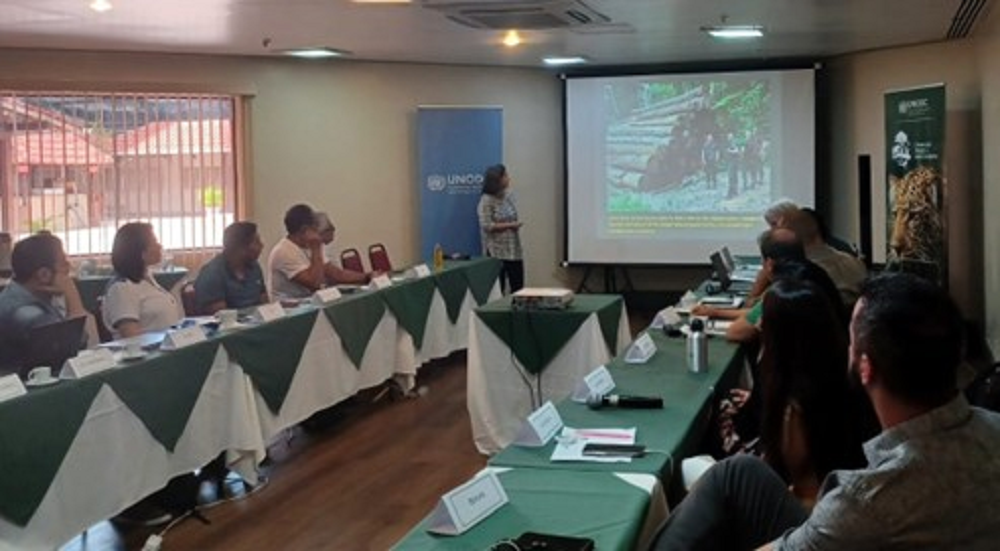
Belém, Brazil, 14 April 2023 - As one of the countries with the greatest biodiversity, Brazil has a thriving environment, rich in different natural species. However, it is often subject to crimes that harm its integrity, ranging from illegal deforestation to the trafficking of timber and animals.
In the fight against crimes that affect the environment, UNODC acts to promote interinstitutional cooperation to strengthen measures to prevent them. Alongside governmental agencies, private initiatives can also contribute to a more sustainable forest management, in accordance with the law.
As a part of the project “Strengthening the Criminal Justice System Response to Forestry Crimes in Brazil (CRIMFLO)”, UNODC Brazil held a technical meeting on Forest Management, Challenges, and Environmental Legislation Linked to the Private Sector in Belem, the State of Pará, on 13 and 14 April.
The workshop, which counted with the participation of private sector companies and associations including the Forest Stewardship Council (FSC), Precious Woods-Mil Madeiras, Unifloresta, and AIMEX, sought to increase dialogue among representatives of such companies as well as state and federal environmental authorities and the academic community.
Representing the government included the State Secretariat of Environment and Sustainability of Pará (SEMAS) and the Brazilian Forest Service/Forest Products Lab and the Brazilian Institute of Environment and Renewable Natural Resources (IBAMA). Academic institutions were represented by researchers from the Brazilian Agricultural Research Company (EMBRAPA) and from the Federal University of Pará (UFPA).
Throughout the technical dialogue, participants agreed that forest management is an essential instrument to prevent illegal deforestation that can benefit both local communities and state governance.
Participants also highlighted the main difficulties involving the process of forest concessions and forest inventory, as well as environmental legislation, human resources for inspections, and negative impacts including violence stemming from conflicts around land use. The lack of public servants dedicated to the analysis of the forest management plans was pointed out as one of the main causes that discourage the adoption of sustainable forest management.
Representatives of the private sector and government agencies both noted the importance of dialogue between the private sector and public authorities, which are not held on a regular basis. Crucially, this type of exchange can both promote legality within the sector by sensibilizing the private sector on updated requirements from governmental authorities and providing a space for representatives of the private sector to share necessities and suggestions that will facilitate their adherence to such laws with government authorities.
Based on the results of this meeting, a second technical dialogue is planned with the private sector and public authorities for later in 2023 to identify points of common challenges with government organs to prevent forest crimes and illegality in the timber trade supply chain.
CRIMFLO, supported by the United States Department of State Bureau of Narcotics and Law Enforcement Affairs (INL), began in late 2022 with the goal of strengthening the criminal justice system response to illegal deforestation and timber trafficking in Brazil by supporting various levels of law enforcement via delivery of technical assistance, cross-border and interregional cooperation, interagency coordination, and partnership with the private sector. With a focus on the Brazilian states of Pará and Amazonas, the project will engage with both the state and federal authorities to strengthen investigations, seizures, and prosecution.
Learn more: http://www.agenda2030.com.br/